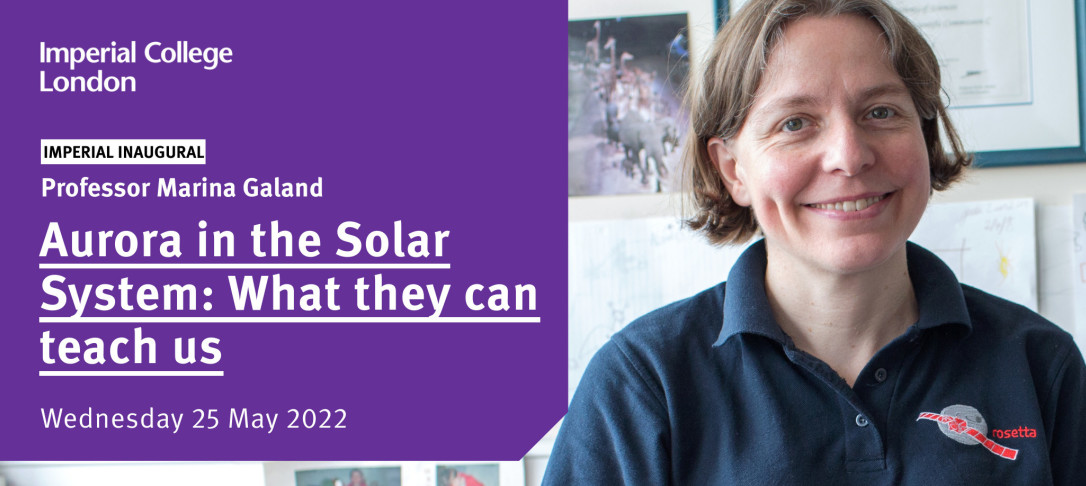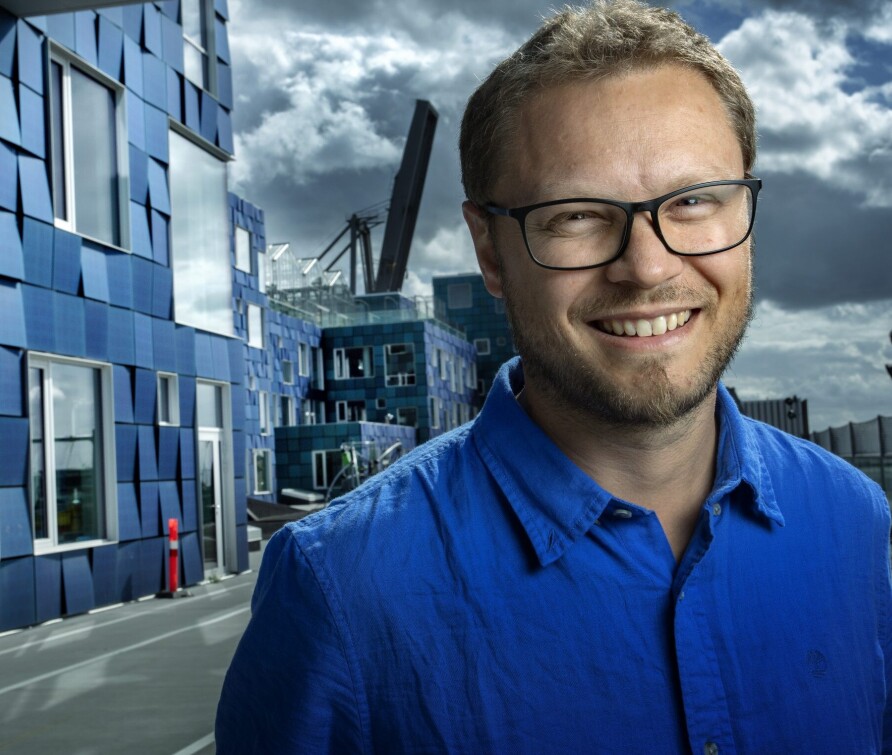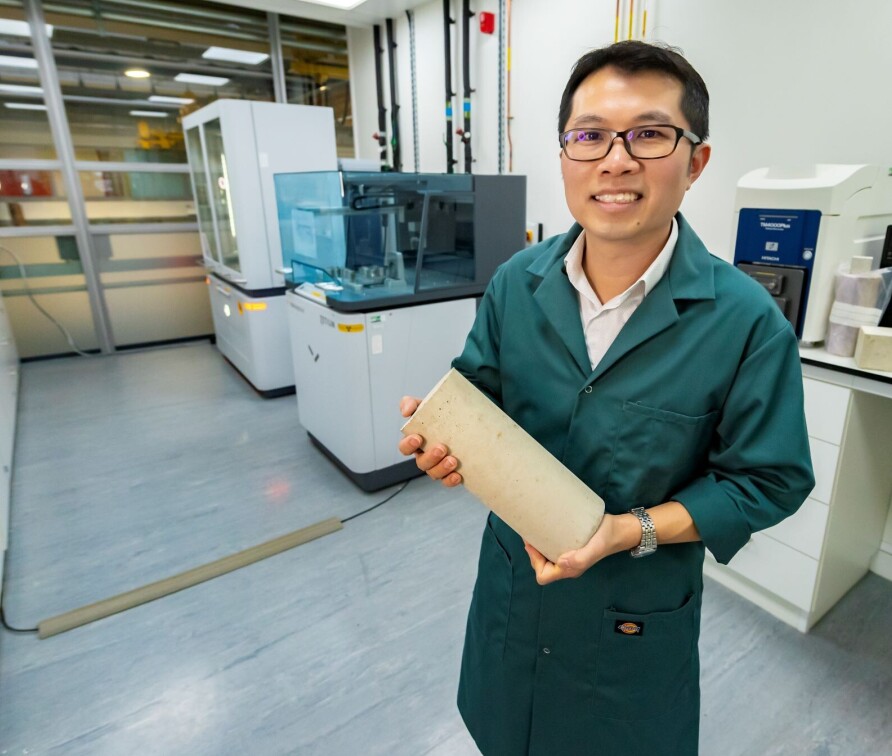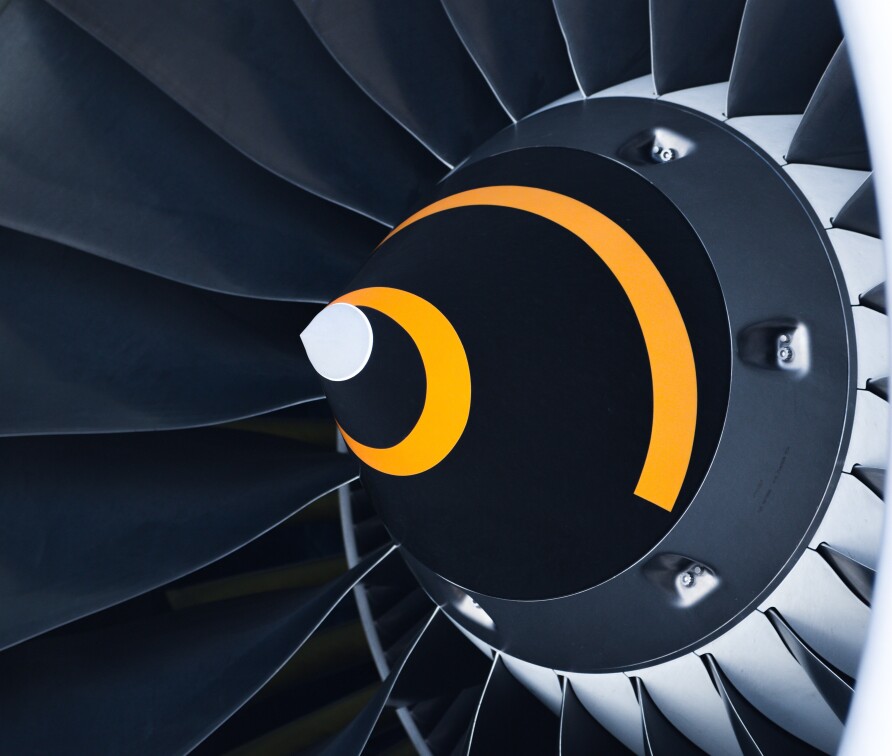
Join Professor Marina Galand, online or in person, for her Imperial Inaugural.
We have limited in-person spaces available so please ensure you register in advance.
Please click on the link to access the event if you are joining virtually: https://bit.ly/MS_MarinaGaland
If you are unable to access the link above you can also watch this event live on our YouTube channel using the link: https://bit.ly/YT-MarinaGaland
Abstract
The auroral emissions that dance in our planet’s polar skies as the Northern and Southern Lights have fascinated people for millennia. In recent decades similar light displays, which form as charged particles (from the Sun or from a planetary environment) interact with an atmospheric gas, have been seen at various planets and moons in the Solar System, and even around low-mass stars.
Despite these discoveries, many scientists were surprised when ESA’s Rosetta mission revealed an auroral glow in the ultraviolet, this time around comet 67P/Churyumov-Gerasimenko which Rosetta escorted between 2014 and 2016. Auroras are a footprint of the extra-atmospheric energy source inducing them. From their analysis it is hence possible to get a snapshot of this energy source and of its impact on the glowing atmosphere (which includes the formation of a critical plasma layer), both crucial for assessing and predicting space weather in the Solar System.
Marina Galand is Professor in Planetary Science at Imperial College London, and has been exploring the deposition of solar and auroral particle energy in atmospheres of bodies throughout the Solar System and beyond, in close link with international space missions, such as Cassini and Rosetta.
In her inaugural lecture she will discuss how this energy is deposited in planetary atmospheres, will highlight the key role played by the plasma layer produced, and will explore how auroral emissions can be used to infer information on the energy source. She will illustrate her lecture with examples taken at several Solar System bodies, including Earth, Jupiter’s moon Ganymede, and comet 67P.
Biography
Marina Galand received her PhD in Space Physics from the Joseph Fourier University, Grenoble, France, in 1996. She spent several years at the High Altitude Observatory (HAO), part of the National Center for Atmospheric Research (NCAR) and at the Space Environment Center (now Space Weather Prediction Center), part of the National Oceanic and Atmospheric Administration (NOAA), in Boulder, Colorado, in the USA, as a Postdoctoral Fellow. She spent 5 years at the Center for Space Physics (CSP) at Boston University in the USA as a Research Associate, before moving to the UK as a Lecturer at Imperial College London in 2005.
Before joining Imperial College London, her research primarily focused on the modelling and observation of auroral energetic protons and their impact on the high latitude regions at Earth. Since joining Imperial, her research has extended to planetary atmospheres. Her most recent contribution is the identification of auroral emissions at comet 67P in the far ultraviolet, a tracer of electrons emitted by the Sun. She is the Lead for the magnetometer on the probe B2 for the Comet Interceptor mission planned to be launched in 2029. Her work has been rewarded by the Zeldovich Medal (2006) and the Fernand Holweck Medal and Prize (2018).
COVID-19
We are adopting a public health approach that we believe will keep our students and staff safe, and ensure that we can continue teaching, undertaking research and running events. Please take a look at our College webpages for more information.
We encourage all members of our community and visitors to continue wearing face coverings in most indoor settings on campus. Wearing a face covering is particularly important in crowded, enclosed spaces where you may come into contact with people you do not normally meet.
If you are displaying symptoms of respiratory disease we advise you to not attend the event unless you are able to test and produce a negative COVID-19 result.





